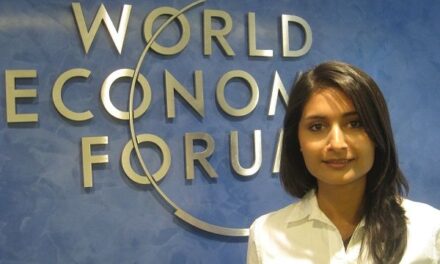
Africa and the European Union: A partnership for the future

By Josep Borrell and Jutta Urpilainen.
Europe looks increasingly at Africa – but with new eyes. There is ambition to lift our partnership to another level.
We want to engage Africa’s youth are determined to build their own future, ideally in partnership with others.
The European Union wants to make sure we do this together: not for but with Africa. This is also our approach in the proposal towards a new comprehensive strategy with Africa. The Strategy is a start for an intense dialogue on our shared priorities, with the finishing line at the European Union – African Union Summit in October. At the Summit, we should jointly agree on concrete deliverables to benefit the lives of African and European citizens alike. The Summit should serve as a catalyst.
The new EU leadership has put Africa at the very top of its agenda. The President of the European Commission Ursula von der Leyen and the President of the European Council, Charles Michel have been to Africa within weeks after taking office. Last week we travelled to Mauritania, Burkina Faso, Ethiopia and Sudan.
Meanwhile, Africa is changing too and this change is driven by economic dynamism and the world’s youngest population. Regional integration is also advancing: with the African Continental Free Trade Area (ACFTA), the continent is aiming to create the biggest trade area since the founding of the World Trade Organisation. Our twin continent is indeed in many ways the place for the future: be it climate change, digitalism, sustainable growth, fair economy and security, it is Africa, where the globally important decisions are going to be taken.
Regrettably, multilateralism is being undermined just when we need it most. The two biggest trends shaping our world – climate change and the digital revolution – are changing both continents. This is why Africa and Europe should stand up for a model of international cooperation, based on rules-based multilateralism, political freedom, solidarity and human dignity. Inclusivity will enable us to harness the full potential of our citizens, including the youth and women.
Other players are increasingly active in Africa. What is distinct about the EU, is that we put human development and sustainability at the heart of our vision: the right of people to shape their own lives in freedom and with their rights protected.
Progress in Africa is real, but there are still many challenges: enduring poverty, conflicts and democratic rights are under threat. The expected doubling of Africa’s population presents real opportunities but also demands action. We need to be ambitious but also realistic and focused on what works.
The key factor driving us to revamp our partnership is not our geographical proximity, shared past nor personal links. What really drives our partnership is our shared future and shared interests.
What forms the essence of a future-oriented EU-Africa partnership? This week the European Commission puts forward its proposal for a strategy for a partnership with Africa.
The agenda is built on the following building blocks:
1.The Green transition and energy access. The climate crisis makes ambitious climate action imperative. But the green transition is also a new growth strategy. Let us work together to create green jobs in renewables and sustainable urbanisation.
2.The digital transformation. Africa is already embracing the digital revolution. Look at the transformational effects of e-payment systems. Let us maximise the potential to leapfrog and use the digital economy to drive economic growth.
3.Sustainable growth and jobs. The economic dynamism in Africa is real. Working together, we can unleash the potential especially of young people and women. The ACFTA has the potential to be a game changer.
4.Peace and governance. Silencing the guns was the theme of the last AU Summit. As the AU steps up, the EU is ready to do more. The new European Peace Facility will enable us to do more together. For peace to be sustainable, it must be anchored in local political dynamics.
5. Migration and mobility. It is a fact that migration is happening at unprecedented scale – mostly within Africa. Demographic and economic trends suggest it will remain a big feature on the Europe-African agenda. We need comprehensive and balanced approach, based on partnership and joint responsibility.
Above all, Africa and EU need to be partners for multilateralism, defending a sustainable vision of how to organise societies and the international order, based on human rights and the SDGs, and engaging with youth. Precisely because these principles are openly questioned.
We are ready to take a leap forward in the Europe-Africa relations. Both sides will need to invest in it. Europe for its part is ambitious and keen to discuss with our African partners how we can shape our shared future together.
*Josep Borrell is EU High Representative for Foreign Affairs and Security Policy and Vice President of the European Commission. Jutta Urpilainen is European Commissioner for International Partnerships.












































